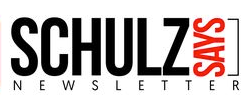Tax laws, boundaries and rates are always in flux, making it nearly impossible for businesses to ensure compliance. For medical device manufacturers and importers, a new law going into effect at the beginning of the New Year will make the calculation and remittance process even more complex and time consuming.
Passed as part of the 2010 Affordable Care Act, the Medical Device Excise Tax (MDET) includes significant tax reporting changes for manufacturers of medical devices. The law, which goes into effect on January 1, 2013, requires medical device manufacturers and importers to pay a 2.3% excise tax on the sale of certain medical devices after December 31, 2012.
 The definition and taxability of medical devices lies heavily on the Food and Drug Administration’s definitions of a taxable device. Certain items are exempt from the tax, such as eyeglasses, contact lenses and hearing aids. There is also a retail exemption on items purchased at retail for individual use. See the safe harbor provision in §48.4191-2(b)(2)(iii) of the regulation for more information. Additionally, there is an exemption for installment sales of medical devices entered into before March 30, 2010. There are some instances which allow medical devices to be sold tax-free, however both parties in the sale must be registered with the IRS, see Form 637.
The definition and taxability of medical devices lies heavily on the Food and Drug Administration’s definitions of a taxable device. Certain items are exempt from the tax, such as eyeglasses, contact lenses and hearing aids. There is also a retail exemption on items purchased at retail for individual use. See the safe harbor provision in §48.4191-2(b)(2)(iii) of the regulation for more information. Additionally, there is an exemption for installment sales of medical devices entered into before March 30, 2010. There are some instances which allow medical devices to be sold tax-free, however both parties in the sale must be registered with the IRS, see Form 637.
The medical excise tax will be reported like other excise taxes on Form 720, which is filed quarterly. The first return will be due on April 30, 2013. Semi-monthly deposits will be required if the tax liability exceeds $2,500 for the quarter, timing for these deposits are dependent on whether the taxpayer has elected to make deposits using the Regular Alternative method . Generally these deposits must equal 95% of the liability for the semi-monthly reporting period.
While the additional cost of the excise tax for many small to mid-sized businesses may be difficult to handle, the penalties for non-compliance are severe. Notice 2012-77 provides transition relief during the first three quarters of 2013 from failure to deposit, assuming a manufacturer makes an effort to make deposits on time. After that, manufacturers who fail to comply with filing and payment requirements may be subject to penalties and interest.
Training your staff to adhere to these changes in excise tax reporting is costly and error prone and takes away time that could be better spent focusing on your business. Avalara’s AvaTax simplifies your tax compliance process. AvaTax Calc will allow you to calculate medical device taxes and generate a report to assist with deposit calculations and completion of Form 720. In response to the changes in medical device excise tax, Avalara added two new entity/use codes specifically for medical devices to be used in combination with a tax code to support proper tax calculation.
Avalara’s cloud-based sales tax management solution works with your existing tax procedures to help you stay one step ahead of any tax rate changes. In addition to managing your medical device excise tax, AvaTax can help with sales tax calculations, filing and remittance and also exemption certificates. To learn more about the benefits of sales tax automation, watch a five minute video: “Sales Tax Automation: The Time Is Now”
The above is a guest post from Avalara who provide sales tax processing services which integrate directly to Sage (Also 150+ connectors. From ecommerce to ERP, accounting to mobile. And an API for everything else.) accounting systems and relieve companies of the burden of sales tax compliance. The concepts presented above are intentionally broad in nature and not mean to provide tax or accounting advice related to your specific situation. Please consult with your tax advisor – we take no responsibility for errors or misinterpretation of the concepts above.

You must be logged in to post a comment.